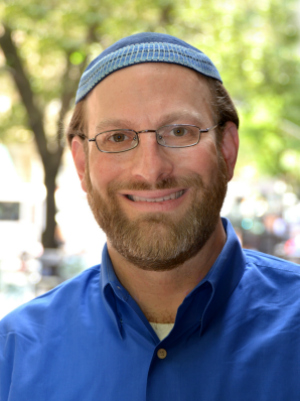News
News
Parashat Bereishit
September 25, 2013 | Worship and High Holidays

Rashi, the great French Medieval commentator, has a fascinating analysis of Genesis 1:11. Rashi says that when the fruit trees first came to be, they did not create themselves in the way that God intended. God planned not just that the fruit would grow from the tree, but also that the tree itself would taste like fruit. In other words, that you could pull down a branch or a piece of bark or a leaf and it would taste just like the fruit. However, the trees, Rashi explains, essentially rebelled against God, following the sin of Adam and Eve eating the forbidden fruit. The rebellion of Adam and Eve led to the trees rebelling as well.
When I first read this Rashi many years ago, I remember thinking that it was a captivating story, but that I did not fully understand it. What exactly was Rashi trying to say? Rabbi David Walk, a teacher of mine at the time, explained that sometimes when you do not understand a Rashi, the best thing to do is to let it sit in your mind for a while, sometimes for years, and eventually something will happen, your experiences in life will offer you insight into what Rashi is saying.
I came to understand what this Rashi might mean when I made my first trip to Poland, where I visited the horrible Holocaust concentration camp, Auschwitz. One of the most stirring things that stood out to me on that visit was the trees. There were willow trees all over Auschwitz. The epithet of willow trees is of course the weeping willow. Now it is possible that the trees were planted long after the Holocaust, but in my mind I had this notion that when everyone had lost their ethics, their morality, and their overall way of relating to the horror that had gone on in this atrocious place, nature was not silenced. Nature reacted – on a metaphorical level, of course – where human beings could not.
There are implications to our moral behavior in nature when we as humanity engage in problematic courses of action. In Parashat Noah, next week’s Torah reading (Genesis 6:11), the evil filling the world is so prevalent that the earth itself is described as “Chamas,” violent. The immorality in Noach’s time had affected the world, the soil itself. Our behavior as human beings affects the world.
To be clear, I am not articulating some theological idea of reward and punishment. Only that when we see problems with the environment that we should not only work to improve the world on a physical level, but that we should strive to improve ourselves on a moral and spiritual level as well.
I bless you all that we improve ourselves, and through doing this, we will improve the entire world.
News by category
Contact
Please direct all press inquiries to Central’s Communications Department via email at .(JavaScript must be enabled to view this email address), or phone at (212) 838-5122 x2031.